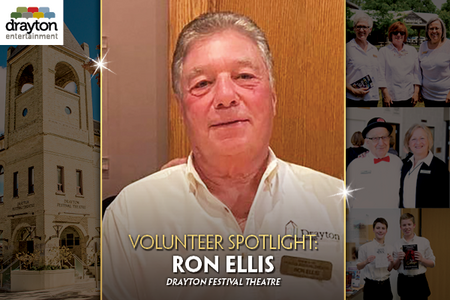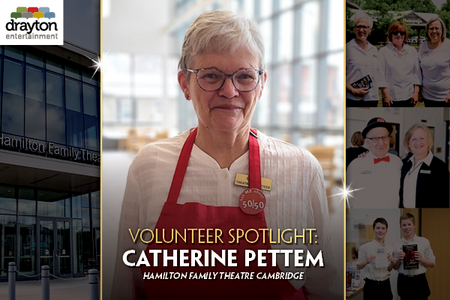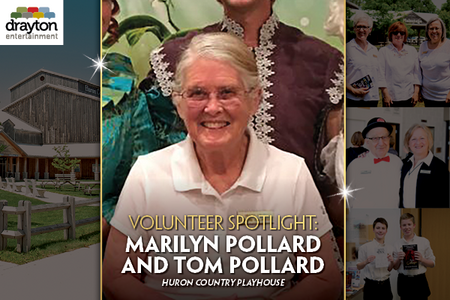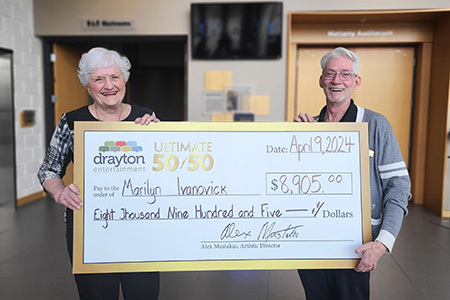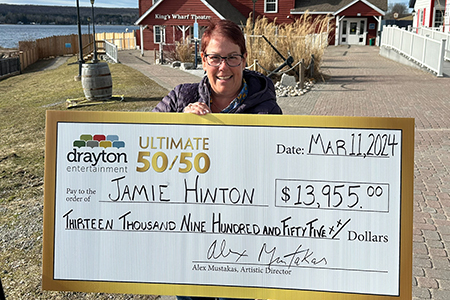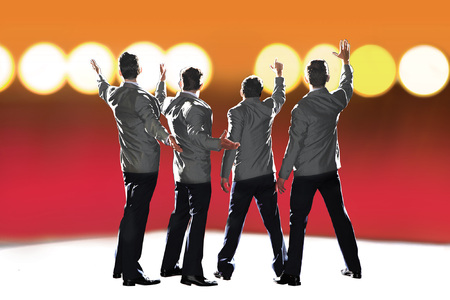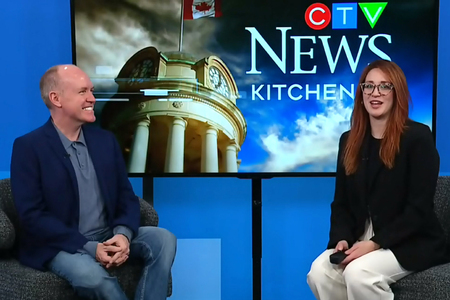Not Fade Away: Buddy Holly’s legacy lives on in a hit musical
May 25, 2023
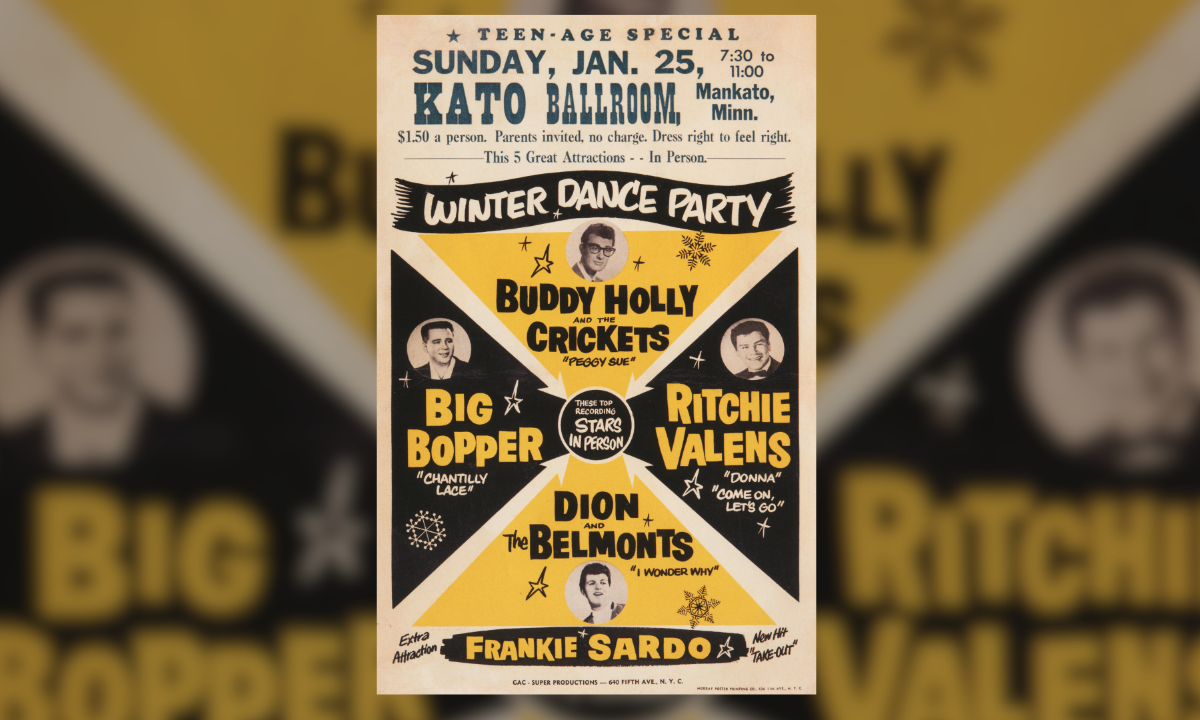
Concert poster for the “Winter Dance Party” tour in 1959.
Nearly six and a half decades after his career was tragically cut short, Buddy Holly’s legacy is not showing any signs of fading away.
Buddy – The Buddy Holly Story celebrates the humour, charm and talent of one of rock and roll’s most influential icons. Following a successful run at Drayton Festival Theatre, the musical transfers to the King’s Wharf Theatre from June 15 to July 1. It traces Buddy’s life from his humble beginnings, through his brief years of rapid success, up to his untimely passing at the age of 22 on February 3, 1959 – “The day the music died.”
Born in Lubbock, Texas during the Great Depression, Charles Hardin Holley was known from early childhood by his nickname, Buddy. His music was influenced by gospel, country, and rhythm and blues, and early in his career he opened for Elvis Presley and Bill Haley & His Comets.
He caught the eye of talent scout Eddie Crandall, which led to a contract with Decca Records. Holly dropped the “e” from his last name after the company misspelled it in his contract.
From 1956 to 1959, he released numerous chart-toppers, including “That’ll Be the Day”, “Peggy Sue”, “Oh Boy!” and “Not Fade Away”.
In 1957, at the suggestion of Don Everly of the Everly Brothers, Buddy switched from old-fashioned glasses to his trademark horn-rimmed spectacles.
Holly’s fashion sense was as recognizable as his unique singing style. In 1957, at the suggestion of Don Everly of the Everly Brothers, he switched from old-fashioned glasses to his trademark horn-rimmed spectacles, a style that had been popularized by TV personality Steve Allen. It wasn’t long before teenagers began asking for “Buddy Holly glasses”.
While taking part in the Winter Dance Party tour in 1959 with several other hit-makers, Holly chartered a small plane to take Richie Valens, J. P. Richardson (The Big Bopper) and himself from Clear Lake, Iowa to their next destination. It crashed in bad weather shortly after take-off, killing the three artists and their pilot, Roger Peterson.
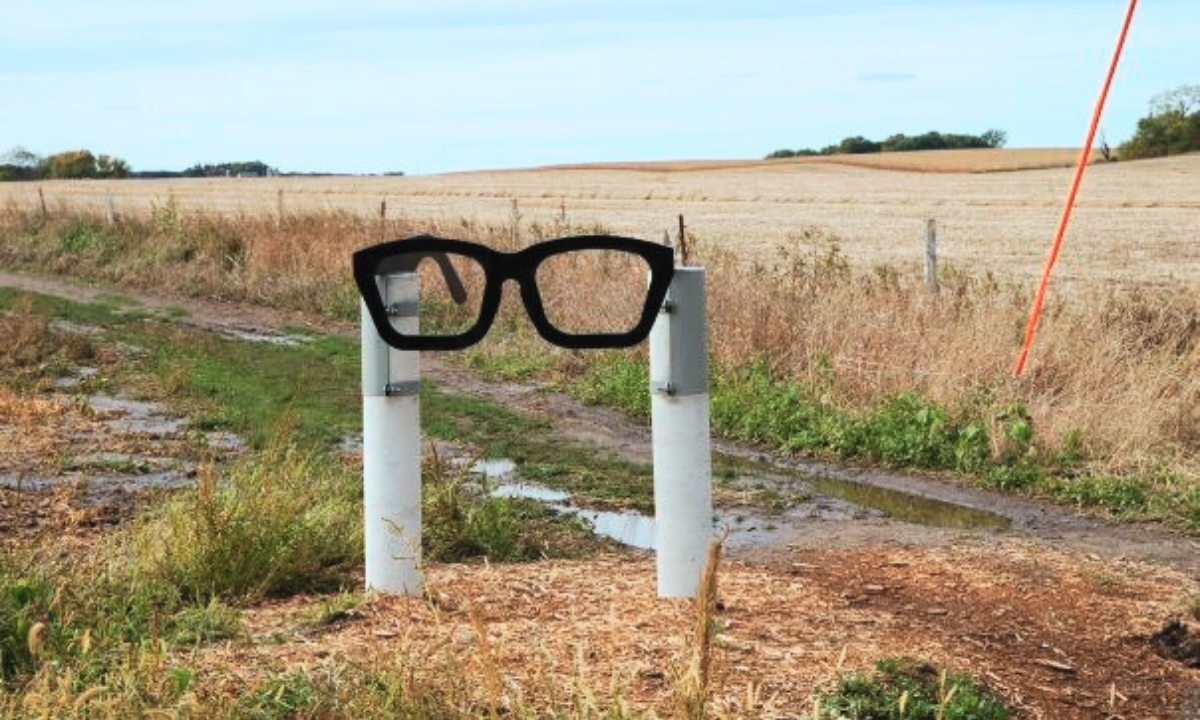
A roadside sign in the shape of Buddy Holly’s glasses, located close to where he died in a plane crash on February 3, 1959 – “The day the music died”.
Holly was inducted into the Rock and Roll Hall of Fame in 1983, the year that the Cleveland, Ohio museum was founded.
The insect-inspired name of Buddy’s band, The Crickets, led John Lennon and Paul McCartney to name theirs The Beatles.
An eclectic collection of musicians – including The Rolling Stones, Don McLean, Elton John and The Clash – all cited Holly as a major influence. The insect-inspired name of his band, The Crickets, led John Lennon and Paul McCartney to name theirs The Beatles.
In 1988, English writer and producer Alan Janes came up with the idea for Buddy – The Buddy Holly Story during a late-night conversation in a London hotel bar with theatrical agent Laurie Mansfield and film producer Greg Smith. The project was supported by McCartney, who was a huge fan and had bought the publishing rights to Holly’s music in 1976.
The jukebox musical, which is full of rock and roll classics, premiered at the Theatre Royal, Plymouth in 1989 before transferring to Victoria Palace Theatre in London. It ran in the West End for more than 12 years, notching up a staggering 5,140 performances. Buddy simultaneously toured the U.K., setting a record by spending 4 years and 35 weeks on the road.
Buddy Holly’s magnificent music undoubtedly ensures that you leave with a smile on your face and a spring in your step.
Charles Spencer, The Daily Telegraph
The show has been a massive hit with both critics and audiences. In his review, Charles Spencer of The Daily Telegraph said, “Buddy Holly’s magnificent music undoubtedly ensures that you leave with a smile on your face and a spring in your step.”
Worldwide productions have been recognized with dozens of award nominations, and the show has been enjoyed by more than 22 million people.
John R. Banister, Music Director for the Drayton and King’s Wharf shows, has been supervising international productions for more than 20 years. It’s a labour of love for the London native, who has written and arranged Junior Buddy, a children’s version of the show for the next generation of Buddy Holly fans.

